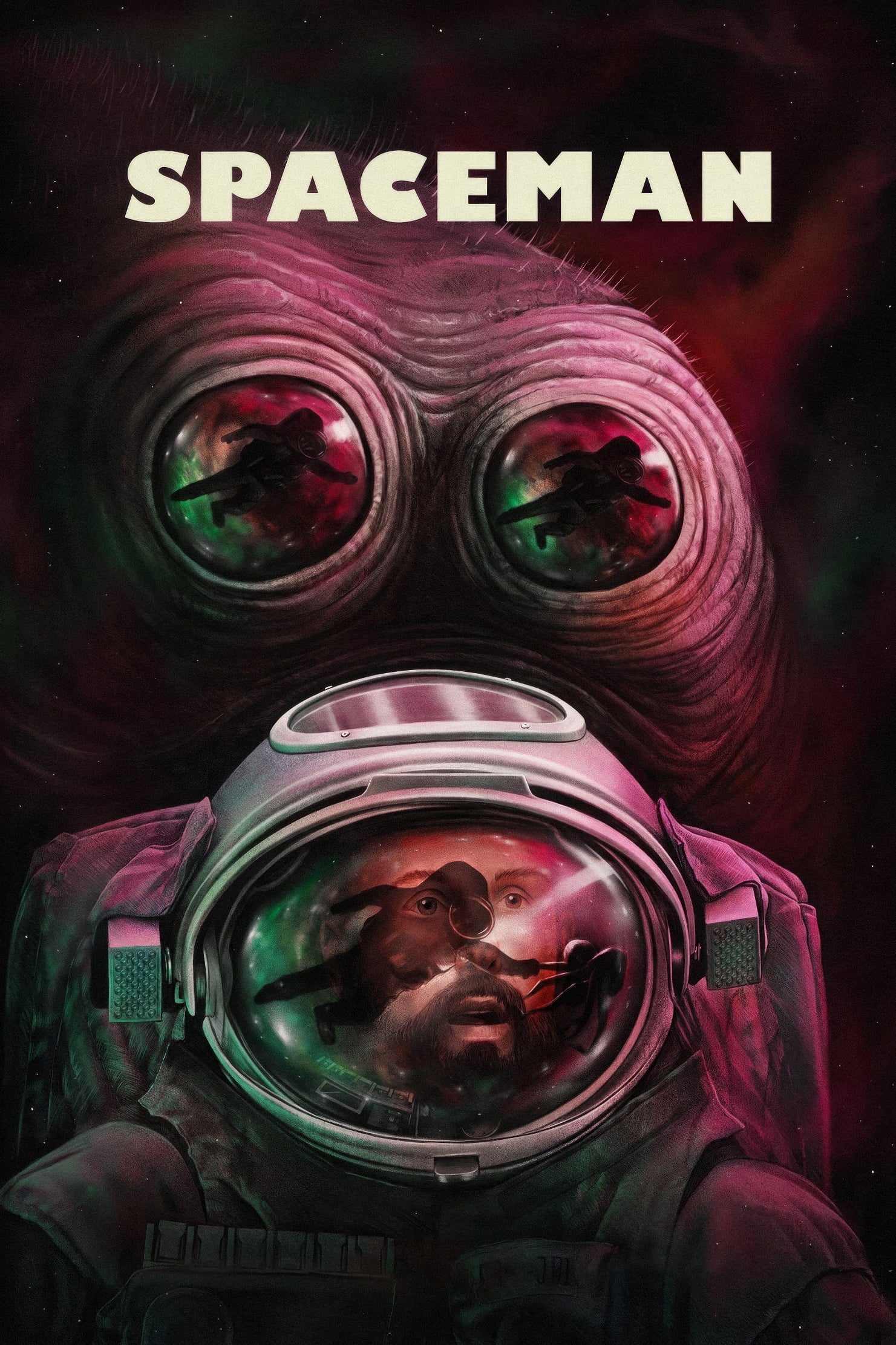
Six months into a solo mission, a lonely astronaut confronts the cracks in his marriage with help from a mysterious creature he discovers on his ship.
01 Dec Spaceman (2024)
Eclipsed
Kubrik’s ‘2001’ was so good in different ways that it has become appreciated for incidental qualities instead of the filmmaker’s intent. What he explored in basically all his films after this period was the relationship among ‘truth’, and how it is carried by the surrounding world and internal space we occupy with (usually) a sole character. That film was a cosmic game for narrative control among computer, filmmaker and a god. Placing it in space allowed the computer some agency, some purity in the isolation, and some excuse (via the original story) for the god.
I saw this when it was new in a Cinerama theatre crammed with MIT folks and though just a kid realised the world of film had changed in a different, more internal dimension than, say the already forgotten ‘Around the World in 90 Days’.
Many filmmakers saw this as well, including probably the most ambitious and internal filmmaker in history. He made ‘Solaris’ as quickly as he could. This was a more ambitious project, where the filmmaker is oddly placed in reality and shifting/combatting (as surrogate for the viewer) the dominance of the internal life of the sole on-screen character. Tarkovsky is always to be admired, but the concept was more powerful than the film — a rare thing for him.
Soderbergh, ever the film student, attempted to ‘fix’ Tarkovsky’s film, overcoming the Soviet-imposed inadequacies in actor, effects, even music. I think this failed because Soderbergh is a process filmmaker, not a visionary. I know why he did this, but the value was for him, not me.
Another process filmmaker, Danny Boyle, made another stab with ‘Sunshine’, written by Alex Garland, on record as fascinated by these narrative folds. See “Annihalation’
‘Sunshine’ accomplished what ‘Solaris’ attempted, which is a laudable elaboration and advance on ‘2001’. For students of folding and the structure of film narrative, it was a big deal. I would have made ‘Sunshine’ a ‘Four’ were it not for my rule of only two per year and my more visceral experience with the ‘two music movies’ of 2007.
Incidentally, I know Chris Nolan is a student of this very effect, and deeply believe his choice of Cillian Murphy as Oppenheimer was affected by ’Sunshine’. The Manhattan project was done in phase 1 before I worked with those guys, but I can say that the mathematical imagination of these guys comports with Tarkovsky, Kar Wai Wong, Welles, Medem, and in some ways Greenaway and Anderson.
Into this rich and dangerous cinematic territory comes who? Renck? Sandler?
They reset to ‘Solaris’ and a broken relationship. And the Soviet context, translated only slightly to communist Czechoslovakia. This is a Czech mission with a physical set inspired by that ethos extended to the future in a corporate dominated economy.
What they’ve done here is flatten the cinematic experiment to a personal on-screen hallucination. And a complex deep meditation on what it means to be human is reduced to a man’s inability to open his heart. I get it. I even appreciate it. But this is bit like someone taking the vast, deep spiritual inheritance of Christianity and selling Bibles to advance a political career. It works but what is the cost of leaving the depth in someone else’s car while you get your take away.
Posted in 2024
Ted’s Evaluation — 2 of 3: Has some interesting elements.


No Comments